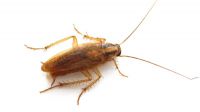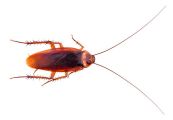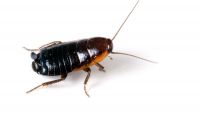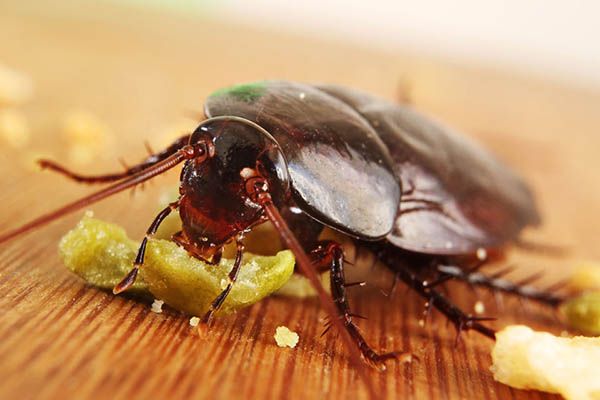Cockroach Control Perth
Known for being one of the most indestructible pests around, if you’re having problems with cockroaches you’re going to need help from a pest control professional.
Don't worry we're here to help! Our pest control technicians are skilled at locating and treating cockroaches, and will also provide helpful advice on how to prevent re-infestations.
Cockroach Treatments
Termico Pest Management offers a complete service in the treatment of cockroaches. Our treatment includes:
• Inspecting your home to locate cockroach hiding spots.
• Applying gel baits to all identified hiding areas.
• Aerosol treatment to crevices and cracks
• Dusting applied to voids and drains inside and around your home.
• Applying a wet spray on exterior walls and areas where pests hide.
• Providing advice on maintaining a pest-free environment after treatment completion.
Cockroach Identification

German Cockroach
• 12 – 15 mm length.
• Light brown – brown.
• 2 dark stripes on the pronotum.
• Adults are winged but can only flutter.
• This is the most common species found in buildings.
• Most infestations are associated with commercial and domestic kitchens and food handling areas.

American Cockroach
• 35 – 45 mm length.
• Reddish brown.
• Yellow border around the pronotum.
• Wings completely cover the abdomen and it will fly short distances in warm weather.
• Enters buildings more often during cold weather.
• Can be widespread within buildings but frequently inhabits sewers, drains and grease traps.

Oriental Cockroach
• 20 – 25 mm length.
• Dark brown – black.
• Female has reduced wings.
• Male wings cover most of the abdomen.
• Does not fly.
• Can infest indoors or outdoors.
• Prefers cooler conditions than other species. Inhabits cellars, subfloors and drains.
Let our team take care of your cockroach problem and call us today.
"We'll take your call, book you in and turn up on time."
Cockroaches
Why cockroaches are considered a pest
Many people find the mere sight of a cockroach abhorrent but their presence carries risks far beyond any psychological response.
Cockroaches can carry many diseases, including typhoid, dysentery, tuberculosis and gastroenteritis. In particular they are well known for spreading various types of food poisoning. Allergic and asthmatic reactions are also reported and when cockroach populations are large they have even been known to bite people.
Cockroach Facts
Cockroaches belong to the order Blattodea. They are a very successful group of insects that have changed very little in millions of years.
Naturally they live in decaying vegetation, under bark and in the burrows of other animals but some species have become very adept at exploiting the dwellings of people. Our kitchens, drains and sewers provide the perfect conditions of food, warmth, humidity, shelter and the absence of predators.
They will eat almost anything: animal or vegetable, food scraps, pet food, fabrics, paper and cardboard, hair and leather, animal carcasses and animal waste. Populations can explode to thousands of individuals within the confines of a single building.
Cockroaches are Nocturnal (active at night or in darkness), Gregarious (congregate and rest together) and Thigmotactic (seek the security of contacting surfaces such as cracks and crevices when at rest.) These habits can disguise the level of infestation and a thorough inspection is often required to locate and treat them.
Sighting of cockroaches during daylight or in well lit areas indicates an overpopulation and further investigation of their usual resting places is recommended.
Cockroach control hints and tips!
There are pesticides available through retail stores and within certain limits; some of these may be effective on cockroaches. Surface sprays and bait stations can help reduce populations but only if careful hygiene practices are maintained. Some things you can do to help prevent cockroaches is:
- thoroughly clean-up food scraps and food preparation areas
- reduce water availability
- storing food in airtight sealed containers where possible
- seal cracks and crevices that might provide harbourage areas
- regularly dispose garbage






